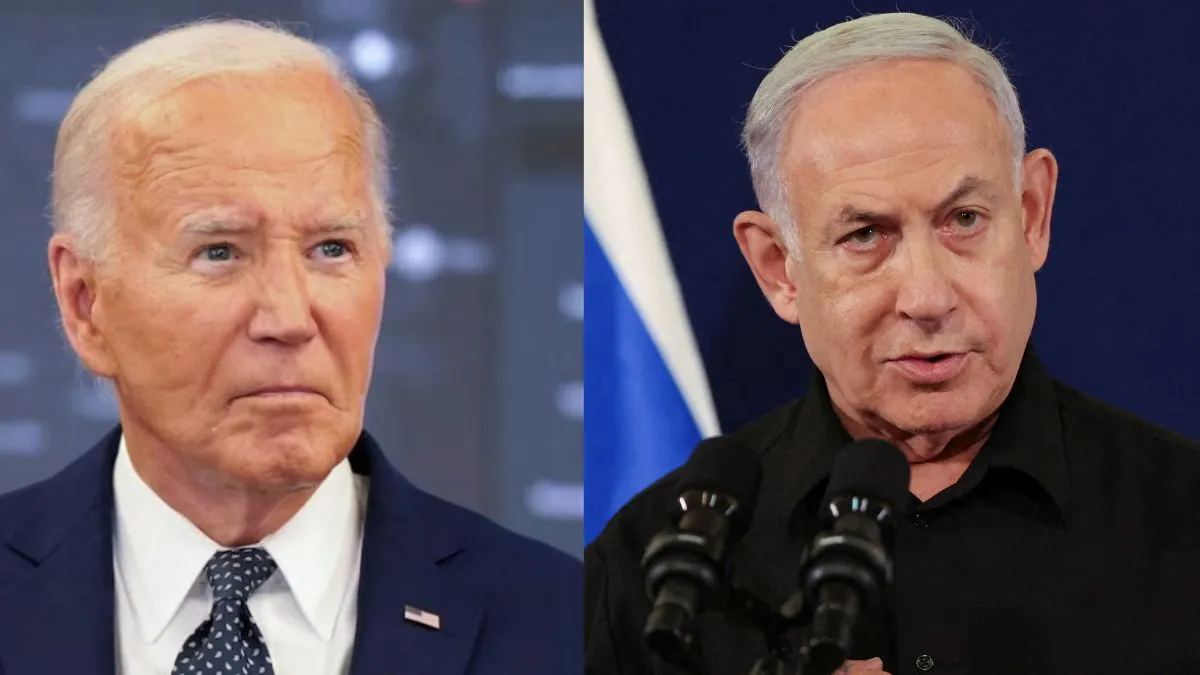- By Shivangi Sharma
- Thu, 10 Oct 2024 04:09 PM (IST)
- Source:JND
Amid reports of rising tensions between the US and Israel, American officials were reportedly frustrated about being kept in the dark regarding Israel’s military plans. US President Joe Biden spoke by phone with Israeli Prime Minister Benjamin Netanyahu on Wednesday, marking their first conversation since August. The discussion focused on Israel's plans for a potential retaliatory strike on Iran, amidst escalating tensions.
Post the call, the White House reported that Biden urged Netanyahu to "minimise harm" to civilians in Lebanon, especially in "densely populated areas of Beirut." State Department spokesperson Matthew Miller stated, "There should be no military action in Lebanon that resembles the situation in Gaza or results in similar devastation."
"They covered a variety of topics," press secretary Karine Jean-Pierre stated after the call, framing the conversation as a continuation of talks between US and Israeli officials regarding Israel's response to Iran's missile strike. President Biden has emphasised that Israel’s reaction should be "proportional".
‘There Should Be No Military Action In Lebanon’
State Department spokesperson Matthew Miller stated, "There should be no military action in Lebanon that resembles the situation in Gaza or results in similar devastation."
The White House issues a readout of President Joe Biden’s call with Prime Minister Netanyahu of Israel pic.twitter.com/NCyStAlsh6
— ANI (@ANI) October 9, 2024
"The president reiterated his unwavering commitment to Israel's security," the White House statement said.
A White House summary noted that Biden strongly condemned the Iranian missile attack but did not elaborate on the details of the leaders' discussion about Israel's response. Biden has previously advised against targeting Iran’s nuclear sites.
Netanyahu has vowed that Israel’s longtime adversary, Iran, will face consequences for its missile strike, while Tehran has warned that any retaliatory action would result in significant devastation. This escalating rhetoric has heightened concerns of a broader conflict in the oil-rich region, potentially involving the United States.

